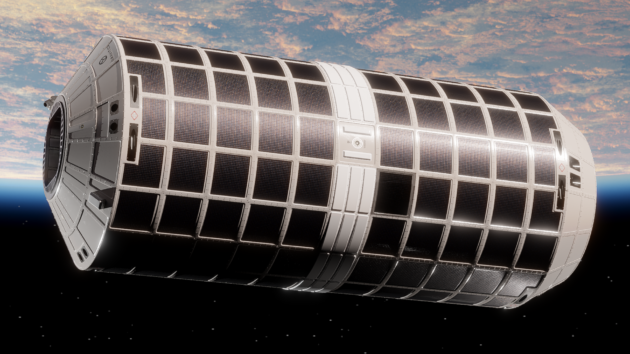Gravitics plans to leverage space station architecture for $1.7M Space Force project

Marysville, Wash.-based Gravitics says it will work with Rocket Lab USA and other partners to adapt its space station architecture for the U.S. Space Force under the terms of a $1.7 million contract.
The contract was awarded through the 2023 SpaceWERX Tactically Responsive Space Challenge, a competition that was conducted in partnership with Space Safari. Gravitics was among 18 companies that were fast-tracked for Phase II Small Business Innovation Research contracts.
Gravitics provided further details about the project today in a news release. The company said it plans to leverage its commercial space station product architecture to develop orbital platforms that will enable rapid response options for the U.S. Space Force.
“We are looking at all options to meet the mission on tactically relevant timelines. The Gravitics space station module offers an unconventional and potentially game-changing solution for TacRS [Tactically Responsive Space],” said Lt. Col. Jason Altenhofen, Space Safari’s director of operations. “As we look into the future, the innovative use of commercial technologies will be an important aspect to solving some of our toughest challenges.”
Gravitics CEO Colin Doughan said the company would stay focused on commercial applications for its modules, which are being developed at a 42,000-square-foot facility in Marysville and could become available for delivery as early as 2026.
“Developing and manufacturing commercial space station modules will continue to be at the core of our company mission,” Doughan said. “Gravitics is thrilled to have the opportunity to offer these commercial capabilities to the Department of Defense.”
In addition to Rocket Lab USA, Gravitics’ partners on the project include True Anomaly, Space Exploration Engineering, and Eta Space. Those partners will assist Gravitics in refining mission architecture, developing use-case specific outfitting, and developing flight hardware.
More from GeekWire:
Microsoft and Amazon take on new roles in Pentagon’s space communication plans
Microsoft Azure enlists generative AI to help Pentagon look for satellite imagery
SpaceX sends Axiom’s crew, including two Saudis, to do research on space station
Three Pacific Northwest space companies win awards from Space Force venture fund
